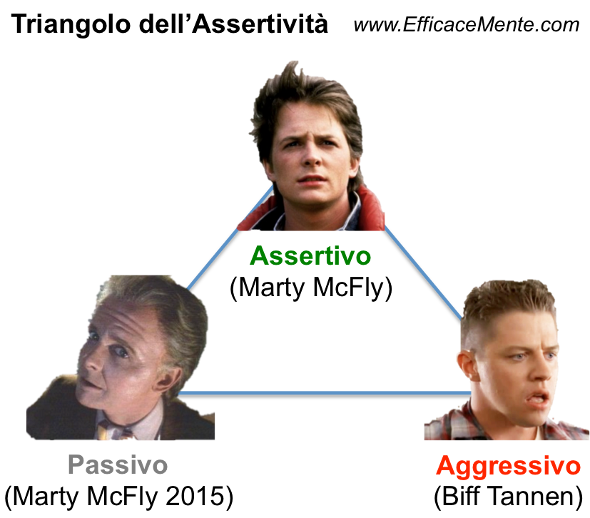Did you know that self-esteem can already be learned as a child? In this article we see 4 practical strategies to teach the little ones about serenity and self-confidence.

"You never get it right!" "You are a disaster!" "Look at your cousins, they sure ..."
How many of the passwords that adults tell children, often without thinking, have a reflection on their self-esteem and over the years they turn into bigger and bigger problems?
Self-esteem is one vital resource. It allows you to overcome difficulties, stay healthy, make your dreams come true and become successful adults.
It defends against anxiety, depression, violence and all those behavioral disorders so typical of our years. But it is also a delicate gift to be protected, which can suffer decline. The words that reach the hearts of the little ones are deposited and form the fabric of theirs interior monologue, that is, of the dialogue they will have with themselves.
"I'm really good at ...", "How can I manage ...", "I really want ...", "I organize myself for ...".
"I'll never be able to ...", "I'm the poorest of all ...", "I don't even try, so much ...", "I won't make it in time ...".
Depending on the case, the inner monologue could be positive like a magic formula or embody a kind of constant curse.
The incessant criticism, the comparisons, the finger always pointing at what is wrong, a constant omission of gestures of affection are small, daily abrasions of theself-esteem of children.
Taking care of it is a investment: it means raising young adults who will have much more time and resources available to realize their happiness.
So, who we are Parents, teachers, kin o friendsHere are some behavioral strategies for protect children's self-esteem and make it grow luxuriantly.
1) Let the spilled milk dry

Children, by definition, combine disasters. Sometimes they do it out of inattention, sometimes out of spite, other times with the best of intentions. (Ask your parents / grandparents. Something tells me that you too, as a child, were not a model of virtue).
Don't stigmatize or dramatize mistakes.
More than excessive criticism, generalizations like 'always' and 'never', great perfectionism, it is useful point out mistakes without mortifying.
Morality hardly works with the world of childhood. Therefore, criticize the mistake, not the child. And push it quite firmly to find a concrete solution for yourself. “You did a stupid thing. Try to fix it"Will certainly give better results than yelling at him saying:" You're always the same stupid! ", While running to solve the problem for him.
In the latter case, the child would feel only mortification and a sense of uselessness, and two of the most important faculties typical of childhood would be paralyzed:inventiveness andresourcefulness.
If you push it to fix the errorInstead, he will learn four basic things:
- that his actions have some consequences and that there is not always 'help from home' to get him out of trouble
- to orient oneself in life in a way constructive
- to discover that deep inside there are special resources to get out of complications, so a to rely on oneself
- that making a mistake must not terrify. The important is learn from mistakes and don't repeat them.
Not tidying up the room? Leave it as you found it. At some point the entropy will disgust him too and you will see him wielding the vacuum cleaner.
Did you have a fight with a friend? If it's his fault, teach him to apologize and come up with gracious kindness to make up.
The thing also applies in the school environment. If he gets bad grades, it is much more educational to let him know that he has to find a way to raise the average (by studying on his own or with some classmates), rather than paying him tuition, thus convincing him that he cannot. do it yourself. You can suggest different and more effective study methods.
If you really need to point out what's wrong with the child's behavior, use theirony (not sarcasm): it takes away weight and will surely know how to bring you closer to its light-hearted universe than the big words from the supreme court or photo novel.
2) Tthe halls the "let's go and criticize"? Get into horse racing

Or even at the harvest. Seriously. The experiences they are a real cure-all for children's self-esteem.
In addition to having fun, getting to know the world, a learn, the adventures within his reach will propel him to know each other: will clarify his preferences, his needs, his dislikes. He will be faced with a good amount of small decisions to make and small problems that he will solve with his own hands. And above all, he and you will discover his talents. Getting to know each other is the first step towards self-realization (as the Greeks well knew).
Observe therefore what he loves to do, who knows how to do well e that repeats without fatigue.
Regardless of whether you like the particular activity or not - the world is already full enough of the children of mathematicians forced to study mathematics and, for a level playing field, of the children of literati destined in infants to the Olympus of Letters, who then in the middle of their lives they run away together to grow opium poppies in Burma.
Push it to bet on that (not on opium poppies): to train his very personal qualities. There are those who are agile and those who are resistant. Who is strategic and who is instinctive. Who is logical and who is creative. Who explains better than a professor and who is inclined to bring peace to quarrels. Who is very good at organizing and who at entertaining guests.
In every child there is the germ of the person who will be. Leave your expectations alone, the buried desires ready to incarnate from generation to generation and all those other wonders ready only to arouse performance anxieties and great unhappiness.
Be objective.
Tell him honestly about his inclinations. And do an experiment. At least for a week, reverse course and change the typical expressions of the family lexicon. Replace "When will you decide to study mathematics?", "This is done this way", "You're so quiet you won't make any friends" with: "Did you see how good you are with your computer?"," What beautiful photographs you take! "," How tidy you are! "," I would love to read what you write ".
His self-esteem can only be happy. And you will see that in the areas of his interest the child will report the greater successes, whether they are educational, sporting, artistic or social.
Two precautions.
1) "Your colleagues make sure they find time to go to the gym on their lunch break"
Comparisons, whether they are with the world of adults or with other children, they are useless. "At your age I ...", "Look at your brother ...", "Those children yes that ...". Each child is different from the others, has different gifts and several times of development. And also different ways of conveying one's talent (see the two tennis players Borg and McEnroe).
Scientific research has not yet been born that certifies the positive effects of comparisons - if not the capital quarrels between brothers, the friendships of the broken heart, the bitter revenge and so on.
2) Businesses halfway between ants and Tanzania
It is important that the challenges are suitable for age and abilities some children. If they are too easy, they can be boring and unmotivating. If they are too difficult, the child is likely to feel overwhelmed and have the urge to give up.
In short, trust the compass of yours common sense and choose a random option halfway between ant counting and extreme vacation in Tanzania.
Ideas: he can cook his own lunch, spend a morning with you on the shore of a mountain river, write and send a business email that you give him, take a train trip alone, call relatives for a dinner.
3) Cuddle him and compliments (not just on Instagram)

Even today you published a tearful post in which you talk about your distant 'little dwarf' that you haven't heard for days?
Be ', sappi che i hearts that pencil drawings on a sheet of paper are worth much more than those you post on social media next to her photo.
Children care about what is said and made to hear in person, not the big over-the-air declarations, the hunt-like exhibitionism or the public acknowledgments with great fanfare. By the way, they have a kind of radar for half-truths of adults.
Children's self-esteem thrives on the sincere affection of the surrounding environment.
Feeling loved for what it is and not for what he does or does not do is the essence of self-esteem.
Family love protects from neurotic confrontation with others, frominsecurity, from the idea of having to earn theapproval of the world through their own actions.
There is nothing worse for a child's self-esteem than not knowing that he is appreciated by the people he considers important. Or of feeling appreciated intermittently, only when it behaves as adults think is right.
Whenever you feel like hugging / kissing / rubbing a family child, failure.
Whenever it manifests a feature you like, tell him. Leaving behind those annoying, useless urban legends like: "Some things have to be said by others", "I don't want you to get upset and arrogant".
THEenthusiasm It's a thing natural and beautiful, and children love it. Especially since proverbial strangers usually have a bad habit of keeping what they think to themselves, or making biased comments.
Think about how many times it would please you, even now that you are an adult, to receive sincere compliments after you have fully committed to a work project. How nice it is to receive a declaration of love from your partner. (Try to argue with him / her that certain things others have to tell you ...)
If you too think that complaints and criticisms are being voiced all the time today while positive comments seem on the verge of extinction, start with your children. Let go of (c) mental obstructions and do what comes to you spontaneous.
4) Fire the gardener

Give the children unique tasks that they can take care of on a regular basis. Tasks NUMBERS e relevant, which are part of the reality adult. You will broadcast confidence in them and this will make them proud and motivated. Taking care of small projects, taking care of the garden, setting / clearing the table are simple but great gyms of intelligence.
Let me try and that do it yourself. If you see him struggling or slowing down, don't intervene before he asks you. How many artistic careers has the infamous “leave, I'll do it” crushed!
In addition to a healthy one self-esteem, it is possible to notice a good dose of positive side effects: they will develop responsibility, autonomy, organizational capacity and more.
For example, you will notice that, when faced with very concrete and real assignments, children who usually have a refusal for schoolwork show a completely different approach and energies. You will see that they are capable of attention and dedication.
Teach a complete the tasks they start. Even if they balk, then they will try satisfaction is preferably used for perseverance they have shown and sense of effectiveness for having reached the end of the finish line.
(And in the unlikely event that the oregano dries up, you can always use it on pizza…).
Ideas: send him shopping, have him administer a small monthly sum of money, ask him to play with his younger brother, let him choose the new jeans that he has to buy.


























